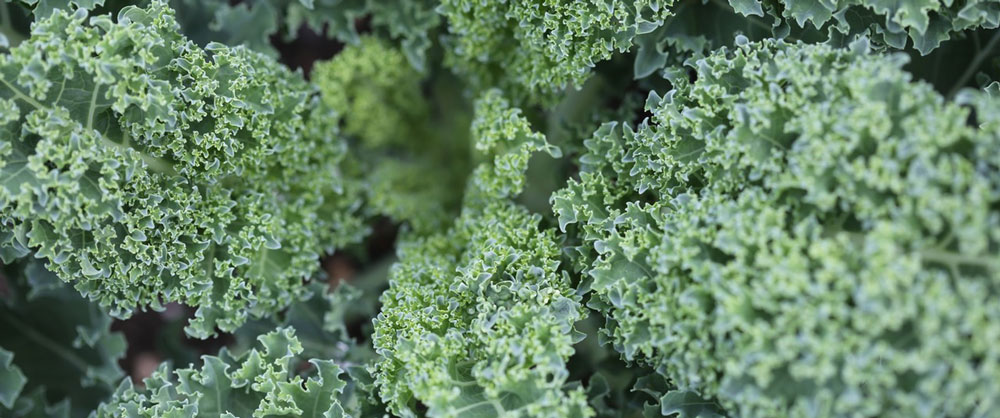- 15% Discount for New Acupuncture PatientsAll new acupuncture patients will received 15% off their first visit. Just mention this ad.
- Acupuncture & Natural Health Solutions2355 Vanderbilt Beach Rd
Suite 146
Naples, FL 34109(239) 260-4566 - Testimonials
Toni saved my life. I had really bad eczema and spent a couple years back and forth in Dermatology offices. They were treating me with steroid topical’s and steroid injections. Nothing was helping! I got worse. I was itching and had hives all over my body. My skin was inflamed so badly it hurt when I touched it. I couldn’t sleep at night since I was having uncontrollable itching. I was so tired from lack of sleep and my anxiety
... Read more » - Sign up to receive news and updates and get my free report:“The Top 10 Reasons to Try Acupuncture”

Clinic Hours
Mon1PM to 6PMTue8AM to 2PMWed1PM to 6PMThu8AM to 1PMFri8AM to 12PMSatclosedSunclosed
Follow Us!
-
Latest Articles:
- • Add These 10 Immune-Boosting Foods to Your Fall Diet •
- • Keep Your Skin Healthy and Glowing with these Fall Skincare Tips •
- • Beat End of Year Burnout with these Fall Self-Care Rituals •
Health WellNews
Seven Ways to Protect Against Skin Cancer
 Skin cancer can be deadly if you let it manifest. The leading cause of skin cancer is overexposure to the sun. Fortunately, there are a lot of ways we can prevent against skin cancer. Check out these tips that you should be practicing to avoid getting skin cancer.
Skin cancer can be deadly if you let it manifest. The leading cause of skin cancer is overexposure to the sun. Fortunately, there are a lot of ways we can prevent against skin cancer. Check out these tips that you should be practicing to avoid getting skin cancer.
- Sunscreen. Sunscreen is integral to preventing skin cancer. When you are going outside in the sun for extended periods of time you should make sure to apply a good sunscreen. Avoid spray types of sunscreen, lotions are preferred. The SPF should be 40 or higher.
- Dermatology check-ups. Schedule annual dermatology check-ups just to ensure you do not have skin cancer or another problem with your skin.
- Avoid sunbathing. I know, I know, this may be one of the sole reasons you go to the beach. But, it has been proven that sunbathing is bad for you…even if you have applied sunscreen! Ultraviolet rays are harmful to the skin and it is important to protect against them however possible.
- Say bye-bye to the tanning salon. Radiation is terrible for our skin. Radiation is found aplenty at tanning salons. It has even been shown that some tanning beds produce radiation stronger than the sun! So think about that the next time you decide to go into a tanning bed… just don’t do it!
- Wear protective clothing. It is one thing to apply sunscreen, but you should also combo that with protective clothing. Wear hats, sunglasses and garments with a ultraviolet protection factor rating.
- Use essential oils. Use lemon, sappan wood and mate leaf essential oils to encourage healing and repair of damaged skin. They will also help prevent potential patterns of skin cancer.
- Detoxify your liver and kidneys. Your liver and kidneys are major players in converting vitamin D from the sunlight and the food you eat. One way to guarantee you are consuming enough vitamin D is to drink milk thistle tea. Testing your vitamin D levels will help you decide if you need a vitamin D supplement.
Three Ways to Protect Your Kids From the Sun
Skin cancer is no joke. Sunburns received as a child can end up resulting in skin cancer as an adult. The good thing is both sunburns and skin cancer are easily preventable. You just need to take action against the sun’s powerful ultraviolet rays. Follow these tips in order to protect your children from the power of the sun.
- Choose the right sunscreen. Choosing the right sunscreen is very important, you want to make sure you are selecting a sunscreen that is water-resistant and at least 40 SPF. Also choose a lotion type of sunblock as compared to the spray kind. Spray sunscreens can miss spots sometimes and don’t always guarantee protection.
- Dress appropriately. Make sure to dress the right way when you will be experiencing lots of exposure to the sun. Wear hats, sunglasses and garments that have a ultraviolet protection factor rating.
- Reapply! Reapply! Reapply! Make sure to always reapply sunscreen during your outings in the sun. This is the most important step, if you only put sunscreen on initially you could still get burned. So avoid this, and make sure to reapply.
The Many Dimensions of the Heart
 The heart is an energetic system we often treat in Traditional Chinese Medicine. According to Chinese Medicine theory, there are many systems of energy within the body. Each of these systems corresponds to certain physiological and psychological functions. So when we talk about the heart, the lungs, the liver. However, when we are speaking about Chinese Medicine organs, we are not talking about the physical organ sitting in your body, but rather the energetic manifestations of a particular system in the physical, mental, emotional and spiritual realms.
The heart is an energetic system we often treat in Traditional Chinese Medicine. According to Chinese Medicine theory, there are many systems of energy within the body. Each of these systems corresponds to certain physiological and psychological functions. So when we talk about the heart, the lungs, the liver. However, when we are speaking about Chinese Medicine organs, we are not talking about the physical organ sitting in your body, but rather the energetic manifestations of a particular system in the physical, mental, emotional and spiritual realms.
The heart is an incredibly important energy system in Chinese medicine. It is said to be the emperor of all the other energy systems. It is related to the fire element, which is the universal energy of summer.
On a physical level, the heart is responsible for pumping blood through our body, just as it is in allopathic medicine. It controls the health and vitality of the blood vessels, and also controls sweating, the tongue and speech. But perhaps the most important role of the heart in Chinese medicine is that it houses the Shen, or spirit.
The Shen in Chinese Medicine is referred to as one of the three treasures of the body. It encompasses consciousness, the emotions, mental acuity and thought, as well as the ability to process incoming sensory information. Each organ system in Chinese medicine is related to one aspect of the spirit (such as intellect, willpower or instinct). The Shen is the most important, as it governs all the other aspects. Prolonged emotional upheaval, mental illness, personality disorders, emotional imbalance, processing disorders and sensory disorders all are manifestations of a disturbed, ungrounded or weakened Shen.
The emotion associated with the heart is joy. This means that joy nourishes the heart. However, excessive joy (ie, mania) is a symptom of an imbalance in this system.
The heart is all about the very act of being alive – from the physical heart beating in our chest, to the flow of blood through our veins, to our mental ability to stay present and focused, and our emotional selves being whole and complete. It is the energy of summertime – abundant, hot and lively.
Nourish the Heart through Food
The color associated with the heart is red. The heart is nourished through red foods, such as cherries, strawberries and kidney beans. Being closely associated with the blood, it is also nourished by blood-tonifying foods. These foods include organ meats, lean red meat and dark leafy greens. The heart is closely tied to appreciation of beauty and aesthetics. Thus, the heart system is also nourished by food for which care has been given to present artfully, with beauty and grace, and a wide array of colors on one plate. The heart is associated with summertime, so think of the abundance of fruits and vegetables available that time of year. Try to reflect that energy in your food choices.
Nourish the Heart through your habits.
The heart is nourished through activities that bring you cheer and joy. Nourishing the heart is about celebrating that which you love in the world – people, places and ideals. The heart governs our relationships with other human beings. It is nurtured by feeling connected to those that we love. Reach out to friends and family, forge new bridges and strengthen lasting bonds.
The heart is also nourished through beauty. Take time to appreciate the beauty of your natural surroundings, as well as music, poetry, art and dance.
Lastly, the heart is nurtured by ritual. This can be a long-standing religious or cultural ritual, or one that you create for yourself. Some examples of heart-healthy rituals include writing down five things you are grateful for each night, incorporating some sort of gentle exercise during each morning, practicing 10 minutes of sitting meditation each day, or grab a coloring book and start coloring!
Traditional Chinese Medicine and Spring
Spring is generally regarded as a happy season, especially for those that live in areas where winter is cold and dark. Spring brings with it longer days, more sunshine, the rebirth of plants and more activity. But for many, the months of spring can also bring irritability, anxiety, sinus issues, allergy flare-ups and even colds.
Traditional Chinese Medicine has been around for nearly 3,000 years, which gives the medical system, as a whole, a lot of credibility. TCM classifies things in many different ways. There are five seasonal associations in TCM – winter, spring, summer, late summer and fall. Each season has its own unique set of properties and associations. Spring is associated with the wood element. The wood element governs the liver and the gallbladder and their energetic pathways in TCM. The five seasons and their corresponding elements interact with one another daily, creating balance and harmony or complete chaos within the body.

The season of spring is a time of expansive movement and growth. Spring is a time of creativity and planning. Since the liver and gallbladder are associated with the tendons and are responsible for the smooth flow of energy and blood throughout the body, our daily activities should reflect this. Being more active and spending more time outside can be great ways to strengthen the liver and gallbladder energies during the months of spring. We should imitate the budding trees and flowers and allow ourselves to grow and reach for bigger and better goals during the spring.
The color green is the color of spring in TCM. During these months, fresh greens are abundant. It is highly recommended that we incorporate more fresh greens into our daily diets. Greens have been shown to be very beneficial for helping the liver do its job, detoxifying the blood. Dandelion greens, in particular, are a good source for detoxification, which ultimately strengthens the liver and gallbladder meridians.
It is also recommended to avoid excessive stimulants during the spring months. Things like coffee are considered expansive and energizing, which can be somewhat helpful during the cold winter months. But during the spring, when life is abounding, excess energy can actually be harmful to the body. It can create headaches, insomnia, anger and more.
When a person is completely balanced, transitioning from one season to another is not such a big deal. However, knowing what elemental type you are can also be very beneficial in determining how you will react to each passing season. For instance, a person who has a wood element constitution, may experience anger during the spring. This is because the wood element is already closely associated with the emotion of anger and spring brings added stimuli that can trigger fits of rage.
One way to keep the body balanced is through acupuncture and TCM. The body is designed to maintain proper balance, but we tend to not pay attention to the warning signs until we experience pain or illness. Getting regular acupuncture treatments can work as preventive medicine, providing harmony throughout every season of the year.
If you experience feelings of anxiety, anger or even self-loathing, acupuncture can help. It can also help with those seasonal allergies that might flare up. Acupuncture is a wonderful way to maintain health and balance all year long. Be sure to find a fully licensed acupuncturist in your area, so you can enjoy spring without any emotional or physical impairments.
Ways for a Healthy Brain
The second week of March is Brain Awareness Week. This is a perfect time to explore ways to keep your noggin working and healthy. Below are easy, simple ways to keep your brain in good shape.
A healthy diet is a healthy mind
There are many reasons to keep a healthy lifestyle and feed your body with foods that make you feel and perform your best. Diets that are low in saturated fats and cholesterol and higher in omega-3 fatty acids have been shown to promote brain health and protect brain cells. Taking a fish oil supplement with DHA or eating fish such as salmon can help improve brain development at any age. DHA, a type of omega-3, may also help prevent certain neurological disorders. Vitamin E and lutein can also help brain health. Incorporate leafy greens such as spinach and kale into your lunch or dinners.

Keep your brain stimulated
At any age, brain exercises are a great thing to get into the habit of. Keeping your brain stimulated can help retain your memory as you get older as well as your capability to learn new skills. The brain is never done learning. Exercises like reading, crosswords, number problems and games like sudoku can help keep your brain stay active and working. If you find yourself experiencing chronic stress, practice daily meditation for as little as five minutes a day to help reduce inflammation and support immune health, which are both controlled by the same area of the brain.
Socialize
Keeping in touch with friends and family and continuously working on building relationships helps your emotional state as well as your physical health. Surround yourself with people who challenge you, understand you and keep a positive tone. Join organizations or clubs you are interested in and make new connections. Feeling connected to others is always important for your mental wellbeing.
Quit the bad habits
If you smoke, now is never a better time to quit. Consuming an excess in substances such as alcohol, cigarettes and other drugs can lower cognitive processes and decrease overall functioning and health.
Acupuncture
In Traditional Chinese Medicine it is believed that the spleen, kidney and heart organs all impact mental capacity and brain activity. These organs influence memory, concentration and recall. When one of these organs is experiencing deficiency or an imbalance, our brain can not function to its fullest. Acupuncture addresses the organs with specific points on the body to return the body back to balance and health.
Spring Acupuncture Tips to Keep You Healthy, Happy and Flexible
Spring is a happy time. Bunnies hop about. Flowers emerge in long forgotten corners of your garden. The birds return and sing so loudly they wake you in the morning.
This is not a time to be angry.
But according to Traditional Chinese Medicine, being angry is exactly what you can expect if you don’t balance your wood element.
In TCM, spring is represented by the element wood. Wood represents birth and newness, the time for fresh ideas and new starts. Unsurprisingly, its color is green like the fresh growth of spring.
Wood governs your spine, joints, muscles, ligaments and tendons. A wood imbalance can lead to spinal problems, poor flexibility or arthritis. Wood also governs your eyes.
But most important for your mood, wood governs your liver. Your liver is responsible for the smooth flow of Qi (energy) and smooth flowing Qi means health and vitality. The emotion associated with your liver is anger. If your liver is imbalanced your Qi will be disrupted and you’ll be angry.
Healthy (and happy) spring acupuncture practices mean balancing your wood element and caring for your liver.

Healthy Spring Acupuncture Practices
Try these spring acupuncture recommendations, to keep your wood balanced and your liver healthy.
Cleanse. Cleaning your colon releases accumulated toxins, undigested food, parasites and fungi. With a clean colon your digestion is more efficient and your body is healthier.
Detox your liver. Reduce or eliminate alcohol or drugs that are toxic to your liver. Consider a detox that specifically targets your liver. Call me if you need suggestions.
Stretch. Start or recommit to a healthy stretching routine. Try yoga, Tai Chi, Qi Gong, or other exercises that move, loosen and flex your joints.
Exercise your eyes. Massage your face, especially around your eyes. Roll your eyes and move them in figure 8s. Practice focusing on distant objects and then focusing on close objects in quick succession. Put time limits on your computer sessions. These exercises strengthen your eyes and can improve your eyesight.
Control your anger. Create a healthy anger management plan. Journal, meditate or get counseling. Put limits on stressful situations. Find activities that refocus your anger in healthy ways.
Healthy Spring Acupuncture Diet
Follow these tips for a healthy spring diet that supports your liver.
Eat light. Overeating taxes your liver.
Eat greens. Sprouts, wheatgrass, spinach, kale and dandelions are particularly good foods in the spring.
Eat sour? Sour is the flavor associated with spring, however sour flavors are only recommended for certain constitutions. Instead of dousing your greens with vinegar or lemon juice dressings, consult with me to find out what flavors are best for you.
Drink milk thistle tea. Milk thistle detoxes your liver.
Season your food. Pungent spices like basil, fennel, marjoram, rosemary, caraway, dill and bay leaf are excellent for spring cooking—and they taste good.
By keeping your wood balanced and your liver healthy you will be happy. You’ll feel vital, flexible and clear. If you have questions about healthy spring acupuncture practices feel free to call me for recommendations.

